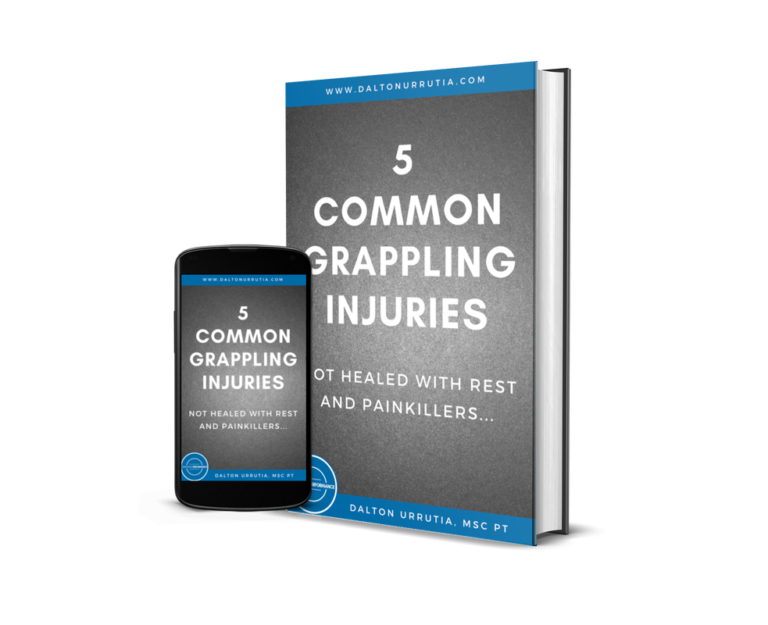CBD Oil, What Are the Benefits?

CBD oil companies seem to be popping up every other day.
Lately, CBD oil brand are at every BJJ competition and/or event, promising a long list of health effects. In particular, the health effects most BJJ athletes are in a constant struggle to manage…Pain, Inflammation, and Injury.
Given the rise in popularity, I thought it would be helpful to myself and others to answer:
What is CBD oil?
How is CBD oil supposed to help?
Most importantly, will CBD oil benefit BJJ athletes?
To answer these questions, I consulted recent research published on the use of CBD oil for pain and inflammation.
What is CBD Oil?

CBD is short for Cannabidiol.
Cannabidiol is 1 of over 100 cannabinoids found in Marijuana and Hemp plants, which make up 40% of the plants extract (1).
While THC is psychoactive, contrarily, CBD oil is non-psychoactive and is typically used purely for it’s health benefits.
Normally, CBD products are smoked, or consumed via sprays, edibles, oils, and/or capsules.
Commonly CBD oil is supposed to reduce pain, inflammation, ease anxiety, improve cognition, and improve sleep among a long list of other effects (3).
How can CBD Oil Help?

CBD can have affects within the Endocannabinoid system (ECS).
The ECS is a system of cannabinoid neurotransmitters and receptors throughout the human body. More-so, the ECS plays an important role in regulating things like immune function, inflammation, pain, and sleep (2).
More specifically, CBD interacts with the CB1 and CB2 receptors within the ECS.
CB1 receptors are found mostly in the brain, where as, CB2 receptors are mostly within the immune system and bone cells (4)(11).
Most of the CBD research published has shown benefits for neurological conditions.
For example, CBD can have positive effects on Neurological conditions, such as, Multiple Sclerosis (5) and Epilepsy (6).
But, What about pain and inflammation?
When injury occurs, inflammation is initiated as a protective and healing response. Inflammation typically involves, heat, pain, redness, swelling, and sometimes loss of function.
Inflammation is a useful mechanism of healing and recovery. However, when the process is prolonged outside of normal timeframes, it becomes chronic and can be a problem.
For example, chronic inflammation can contribute to arthritis-related pains.
There are only small amounts of published research around the effects of CBD on pain and inflammation. However, some does exist.
Some recent research does support CBD’s anti-inflammatory properties, via interaction with CB2 receptors within the ECS (11). In agreement, CB2 receptors have been shown to play an important role in suppressing pain and inflammation (7).
However, other research has shown, CBD suppresses inflammatory and neuropathic pain by targeting α3 glycine receptors, not the CB1 and CB2 receptors (8).
CBD appears to have some ability to affect pain and inflammation, regardless of mechanism.
Furthermore, CBD has been shown to help specifically with chronic inflammation. However, this research was done on rats and, though promising, may not completely apply to humans (9).
Likewise, CBD has been shown to combat arthritic effects through combined immunosuppressive and anti-inflammatory actions (10).
However, the direct impact is poorly understood as many different pathways could contribute.
At a cellular level, CBD does seem to effect pain and inflammation within the body, but is this useful to BJJ athletes?
Will CBD Oil Benefit BJJ Athletes?

BJJ athletes could benefit mostly from CBD oil for it’s ability to ease pain, inflammation, and manage injuries.
Some research above did show that CBD could benefit some aspects of pain and inflammation.
However, no specific research has investigated the effects of CBD on musculoskeletal injuries and their symptoms.
Though, CBD could help indirectly.
For example, CBD has high antioxidant activity. Higher than Vitamin C or Vitamin E, other well known antioxidants (12). This is important, as antioxidants reduce levels of free radicals, which are associated with increased inflammation, and can contribute to various health complications (14).
Additionally, CBD has been shown to improve quality of sleep, which is important for injury recovery (13).
More research should be conducted to help clarify the effectiveness of CBD oil.
Until then, try CBD oil for yourself and see how you respond.
It may help, it may not.
Is it the miracle cure for all aches and pains?
My guess is…. It’s Unlikely.
However CBD may help supplement the things we know help with pain, inflammation, and injury recovery, such as…
Adequate Sleep, Quality Nutrition, Hydration, Good Training and Programming, and Improving Overall Health.
Have a personal experience with the benefits of CBD oil, let us know!
SOURCES:
- Campos AC, Moreira FA, Gomes FV, Del Bel EA, Guimaraes FS. (2012). Multiple mechanisms involved in the large-spectrum therapeutic potential of cannabidiol in psychiatric disorders. 1607. PMC, Pub Med.
- Guindon, J., & Hohmann, A. G. (2011). The endocannabinoid system and cancer: therapeutic implication. British journal of pharmacology, 163(7), 1447-63.
- Boggs, D. L., et al. (2017). Clinical and Preclinical Evidence for Functional Interactions of Cannabidiol and Δ9-Tetrahydrocannabinol. Neuropsychopharmacology : official publication of the American College of Neuropsychopharmacology, 43(1), 142-154.
- Khan, M. I., et al. (2016). The Therapeutic Aspects of the Endocannabinoid System (ECS) for Cancer and their Development: From Nature to Laboratory. Current pharmaceutical design, 22(12), 1756-66.
- Rajesh, M.,et al. (2007). Cannabidiol attenuates high glucose-induced endothelial cell inflammatory response and barrier disruption. American journal of physiology. Heart and circulatory physiology, 293(1), H610-9.
- Stockings E, Zagic D, Campbell G, et al., (2018). Evidence for cannabis and cannabinoids for epilepsy: a systematic review of controlled and observational evidence. J Neurol Neurosurg Psychiatry. 89, 741-753.
- Mackie K, (2006).Cannabinoid receptors as therapeutic targets. Annu Rev Pharmacol Toxicol. 46(1), 101-22.
- Xiong, W., et al. (2012). Cannabinoids suppress inflammatory and neuropathic pain by targeting α3 glycine receptors. The Journal of experimental medicine, 209(6), 1121-34.
- Costa, B., et al. (2007). The non-psychoactive cannabis constituent cannabidiol is an orally effective therapeutic agent in rat chronic inflammatory and neuropathic pain. Eur J Pharmacol. 556(1-3), 75-83.
- Malfait, A. M., et al. (2000). The nonpsychoactive cannabis constituent cannabidiol is an oral anti-arthritic therapeutic in murine collagen-induced arthritis. Proceedings of the National Academy of Sciences of the United States of America, 97(17), 9561-6.
- Bruni, N., et al. (2018). Cannabinoid Delivery Systems for Pain and Inflammation Treatment. Molecules (Basel, Switzerland), 23(10), 2478. doi:10.3390/molecules23102478
- Hampson, A. J., et al. (1998). Cannabidiol and (-)Delta9-tetrahydrocannabinol are neuroprotective antioxidants. Proceedings of the National Academy of Sciences of the United States of America, 95(14), 8268-73.
- Shannon, S., et al. (2019). Cannabidiol in Anxiety and Sleep: A Large Case Series. The Permanente journal, 23, 18-041.
- Closa, D. and Folch‐Puy, E. (2004), Oxygen Free Radicals and the Systemic Inflammatory Response. IUBMB Life, 56: 185-191. doi:10.1080/15216540410001701642
Struggling With A BJJ INJURY?
Simply, Download The Free e-book below!


